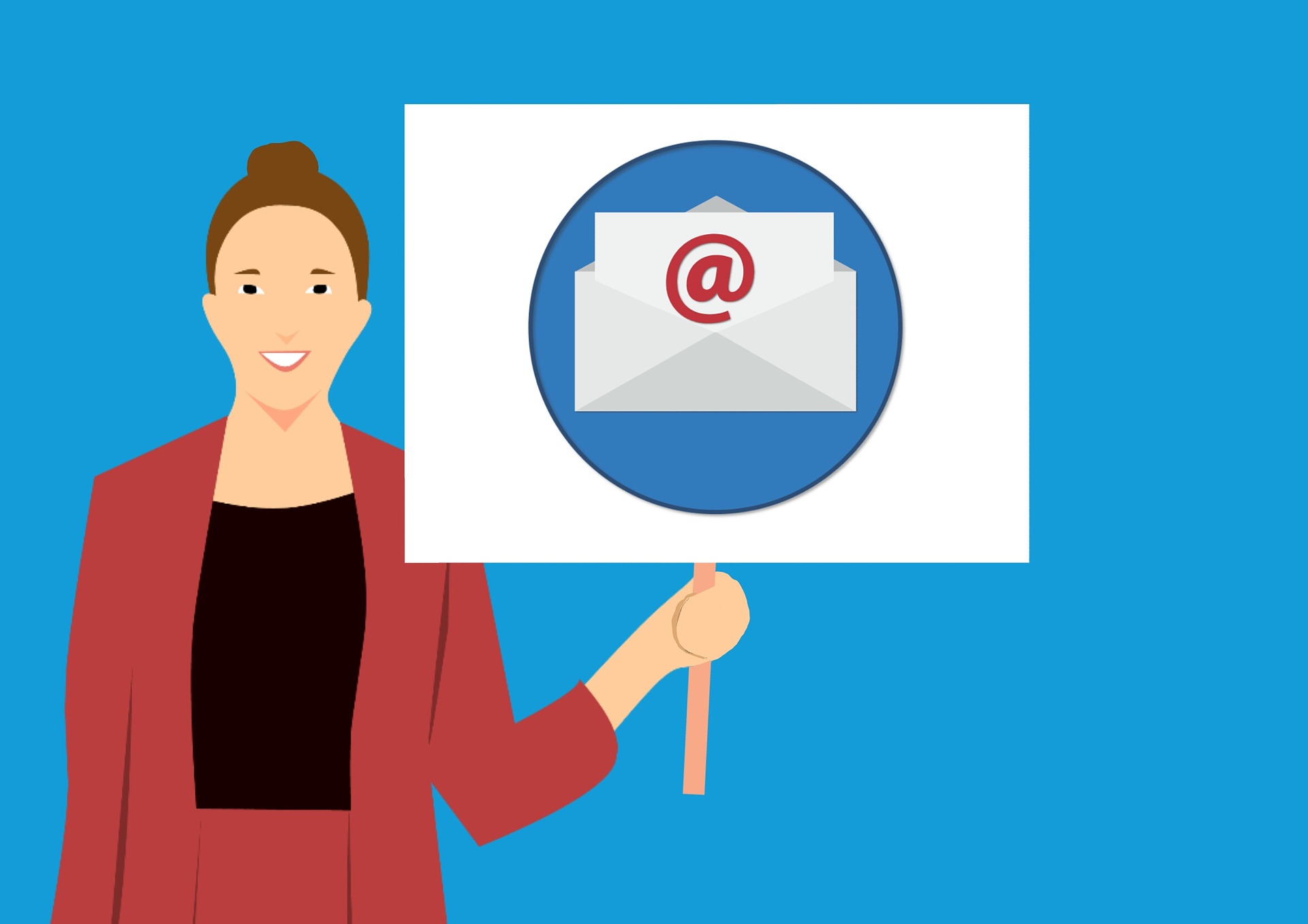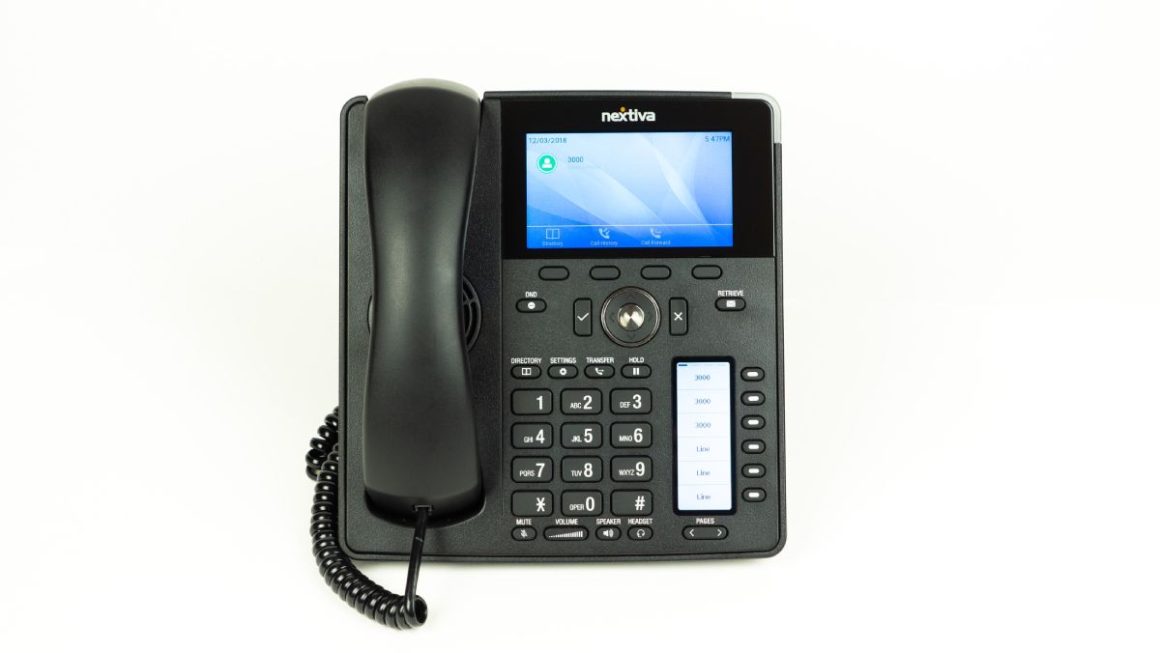In B2B, email marketing is one of the most important levers for communicating with (potential) customers. We have analyzed a study and give you 11 tips for better B2B email marketing.
Email marketing in B2B: at least since the GDPR, email marketing in B2B has become a challenge. Regardless of whether it is newsletters or promotional emails – marketers need a declaration of consent (double opt-in) to contact users via email. In addition, you often have to deal with difficult topics in B2B marketing. In the article, you will find out what email marketing is, how you can use it in B2B and we use a benchmark to show how successful B2B email marketing is in comparison. We also have 11 tips for your email marketing.
The average open rate of B2B marketing emails is 26. This is the result of the Email Marketing Benchmark 2020 by Episerver. Are you over or under? On average, only one in four opens your email at all. In the first part of the article, we will analyze the study for you and then explain how you can make your email marketing more successful in 11 steps.
Table of Contents
What Is Email Marketing? Definition:
Email marketing describes the process of sending emails to different groups of customers or prospects. For example, new products or news can be the focus. Often, however, e-mail marketing also serves to increase customer loyalty through newsletters or discount campaigns that are sent by e-mail.
Due to the progress of digitization, the sending of emails is becoming more and more automated. A marketing automation system also supports this.
E-Mail Marketing Study – What The Results Mean
According to the benchmark, only every 4th of the addressed target group opens your email at all. The opening rate unique is the percentage ratio between the number of tracked openings of a mailing and the messages delivered.
Whereas the absolute opening rate – i.e. all, including repeated openings – looks much better. In B2B, this is 62%. This means that some of the recipients even open your e-mails several times, for example, because they want to reread the text of the message or want to delve into the topics of the newsletter.
These multiple openers are particularly interesting for you as a company. Because they are keenly interested in your products and most likely didn’t just accidentally open the email and then delete it directly.
Also Read: Gadget Trends – Applications For Video Surveillance Cameras In B2B [2021]
11 Tips For Better Email Marketing In B2B
Get Personal
The first and most important tip is to personalize your emails. If you write to a mailing list with 5000 contacts and everyone receives the same e-mail without addressing them personally, then this is – especially in B2B marketing – a likely unsuccessful undertaking.
Of course, this point differs depending on the purpose of the email, but the more I feel spoken to and understood, the more likely I have a positive association with the company.
You have already defined different buyer personas for your content marketing (if not, you will find a template behind the link with which you can easily do this). Use these different interest groups to reach you in a targeted and accurate manner in your e-mails. It starts with the subject.
For example, an engineer might want to be addressed differently and read different information in your e-mail than a managing director.
Your Sender Should Be Real
The same applies to the sender. A personal (real) sender is much more popular than a general email address, such as sales @ XY or marketing @ XY.
Testing, testing, testing
I know, damn complex, but necessary. If you are at the beginning of your e-mail marketing measures or readjust them, you should test what goes down well with your target group. In this way, you can validly substantiate and justify your email marketing strategy and at the same time find new ideas and starting points on how you can inspire the recipients even more.
- There are a few points to consider:
- If you want to test the subject or the sender, then you have to pay attention to the opening rate.
- If you want to check your call-to-action, you should examine the links for the respective URL
- Do little tests. If you test two completely different emails and the performance doesn’t differ, you don’t know what the problem was.
What was it?
- The subject
- The first sentence
- The sender
- The CTA
- The layout
But not all at once, but one after the other.
Short And To The Point, Please
The spice lies in the brevity – yes, actually, even more, empty phrases. But when it comes to email marketing, it gets to the point. Both the subject line should be crisp, exciting, and meaningful – as the study proves – as well as the mail itself.
The shorter and more concise the email looks when it is opened, the more likely it will be read. However, if you overload the recipient with floods of text, he is more likely to close the mail again. Get to the point quickly and keep this in mind in your writing – it is not important what you want to say, but what the recipient wants to read.
The Speech Has To Be Right
Of course, you should be friendly, charming and maybe a little funny. If you want to make the recipient aware of a problem that your product can solve, then suggest understanding – this leads to positive associations.
Package the problem and solution, for example, in a story. Use the expertise from content marketing and storytelling for this. Nevertheless, be clear in your message and also in the aim of the mailing.
A Call To Action Is Essential
The question: “What should the recipient of my mailing do?” is immensely important. Because it provides information about which call-to-action (CTA) you need to incorporate. This can be, for example, a consultation or a link to a further landing page/microsite.
In the best-case scenario, you only have one CTA per email.
Also Read: The Best Providers To Set Up An Online Business
It All Depends On Appearance
Opinions are divided on the format – i.e. HTML or text mail. I can only speak from my experience here and text mails worked a lot better for us. Because a text mailing doesn’t feel like a mass mailing and at first glance even looks like personal mail. However, our newsletter is still an HTML mailing with images to better convey the content. You should test what works better for you and your recipients.
Mobile-first
Today, many recipients read their emails on their smartphones, even in B2B. So be sure to test whether your email also looks good on the go.
Who does not want it, already has it
For marketing, bulk, and sales emails, you must give recipients the option to unsubscribe. Many companies hide the unsubscribe button. I advise against that. Firstly, there have been severe penalties since the GDPR and, secondly, your emails are more often declared as spam. If this happens too often, you may be blocked by the mail providers. Email marketing without the user’s consent is taboo anyway – by the way, it was before the GDPR.
Automate
Marketing Automation Systems (MAS) are the miracles of modern marketing. Sooner or later, such software will be worthwhile for most companies. If you can automate the mailing effort, email marketing will be faster, more personalized, and easier. You can carry out tests more easily and the evaluation is also ensured by such tools.
Analyze
If you have sent a mailing, you should analyze and evaluate the entire campaign afterward. This is the only way you can make the right improvement measures for upcoming email marketing campaigns.
Conclusion: Email Marketing In B2B
If you are wondering why your e-mails are not performing the way you would like them to, expect very different answers. Because the performance of your email marketing depends on a variety of indicators, for example:
- Technical requirements: spam filter, email clients, etc.
- Recipient base: Have correct, up-to-date addresses
- Presentation: subject line, address, and layout
- Trust: sender, reputation, seriousness
- User focus: Relevant topic, personalization
All of these points help to carry technical trends from the market into the company. Because another task in technical marketing is market observation. Competitive analysis and future trends play an important role.




